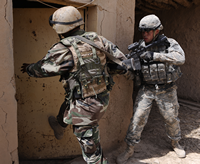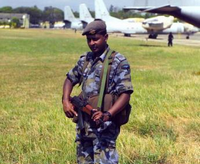
For years, Iran watchers and Iranian opposition leaders, most of whom are exiled in the West, have pointed to the discontent swelling below the surface of Iranian society. Evidence of Iranian discontent was visible in the country’s massive drug problem and in the sporadic protests born of economic hardship and rising unemployment. The huge popularity of the Persian blogosphere, used as a way around restrictions on freedom of expression, was another clear sign of the national mood. The question no one was able to answer was how to engage with that mood in order to unify the disparate visions for […]



